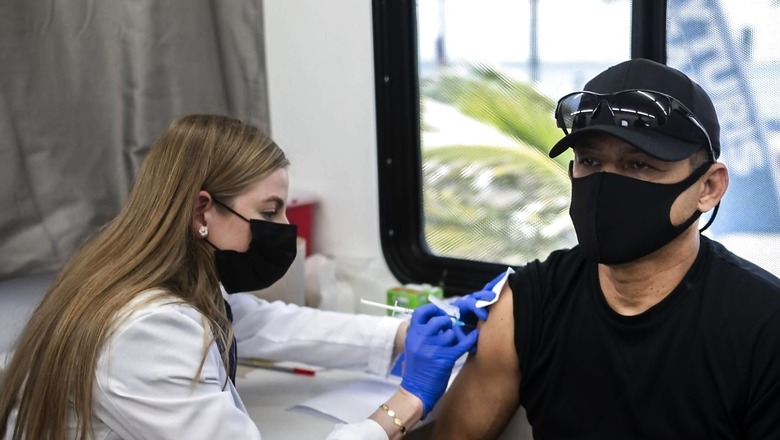
views
The Omicron variant of coronavirus has come as a blow to nations that were slowly beginning to ease travel rules, open up institutions, and ramp up low rates of vaccination coverage. Since its discovery, scientists around the world are trying to figure out the genome sequence of the variant – which “has many more mutations than what is usually expected” –and predict what might happen next.
The global spread of the variant has also prompted nations to reconsider plans for international travel as they scramble to avert an outbreak. Experts, however, agree that the emergence of Omicron has spotlighted low vaccination rates across countries, especially low-income ones.
How is Omicron linked to low vaccination rate?
Meru Sheel, a senior research fellow at the National Centre for Epidemiology and Population Health at the Australian National University, writes in Guardian that viral mutations are common. “When the virus enters a cell, it can make copies of itself that go off and infect other cells and then pass to another person. Sometimes during this process of copying in non-immune persons, it may introduce an “error” or mutation and at times these mutations can offer competitive advantage to the viruses to spread from one non-immune person to another.” However, Sheel explains that if a person is already immune (through vaccination) then the virus cannot spread between people, preventing the emergence of new variants.
ALSO READ: How Vaccine Inequality May Have Spurred the Emergence of Omicron and Why the West is to Blame
According to Our World in Data, a global research and data publication, over 50 countries across the world have missed the target of vaccinating at least 10 per cent of their population by September as recommended by the World Health Organization. Most of the 50 countries that have missed their targets are in Africa, which has an average vaccination rate of 7 per cent, against the global average of 42 per cent.
One of the reasons for low vaccination rates in African countries is poor supply of vaccine doses promised as donations. According to an analysis by Airfinity, a health data company, of the billion vaccines doses promised as donations, less than 15 per cent have been delivered.
Sheel says that vaccinating the world’s population, especially those living in conditions of poverty who experience the worst impact of Covid-19 at the same pace as those in rich countries is important for ethical, economical, and scientific reasons.
Experts are also puzzled about how Omicron emerged, since it is completely unrelated to Delta. “It’s not a twist on Delta as people were expecting, but a new thing based around mutations we have seen before all mixed into one virus,” Ravi Gupta, professor of clinical microbiology at the University of Cambridge was quoted in a Guardian report as saying.
Now that Omicron is here, will vaccines work against it?
Former Indian Council of Medical Research (ICMR) scientist Dr Raman Gangakhedkar told News18.com that vaccines may provide only partial protection against the new ‘heavily mutated’ variant of SARS-CoV-2. Gangakhedkar said the surveillance of the new variant, which was detected in Botswana in southern Africa, will not be difficult if the government ramps up testing, tracing, tracking and isolation.
He emphasised that public has an important role to play by following the basic rules of wearing masks, maintaining hand hygiene and social distancing. “Omicron is going to hunt all those who are vulnerable or non-vaccinated,” he told News18.com.
Dr Peter English, a retired consultant in communicable disease control, was quoted in a Guardian report as saying that it is quite possible that people who have had two or, better still, three doses of existing vaccines will be well protected against it. “But it is also possible that we will have much less protection from existing vaccines against this new variant. We do not yet have enough information to know,” English adds.
Read all the Latest News here

















Comments
0 comment